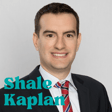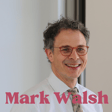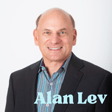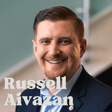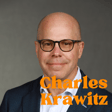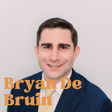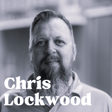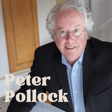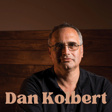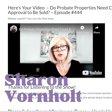Career Shift from Architecture to Development
00:00:27
Speaker
Yeah, so let's let's jump into it. OK, perfect. You majored in architecture, right? And then ended up working in Nigeria. So I'm so curious how this came about. Yeah, so because I know in America, it's like it works slightly different, but it's like your undergrad here is a free year course. And so I did October as my degree and.
00:00:55
Speaker
It was interesting. I mean, I had been working up to that in terms of my college selection, like the subjects I selected for college, which is high school, I guess, for you guys, and then decided to do architecture. And then at the point in which I had to get work experience, I left to Nigeria, which is where my family are from, my family background.
00:01:19
Speaker
to go and work in Nigeria. And at the time I was actually looking at anywhere in the world just because I needed a break from the UK and started working out in Lagos on some really interesting projects. I was on just assisting on the Standard Chartered Bank head office in Victoria Island in Lagos.
00:01:45
Speaker
um I did some uh petrol stations as well which was also quite cool but actually I preferred being out of the office um like much much more preferred being out of the office than being at the desk doing details like I just auto cad was
00:02:06
Speaker
Tiring to say the least. It wasn't just that it wasn't my thing. And I think it was when I finished that experience, I came back to the UK and knew I didn't want to go and pursue a full architectural professional qualification because the process is you do some work experience, you do two years of a master's, then you do more work
00:02:31
Speaker
experience. And then you become a fully qualified architect, but that could take from seven to 10 years. Oh, wow. Yeah. And I realized I didn't want to dedicate another six years of my life to pursuing architecture. It just wasn't for me. Right. So I pivoted.
00:02:49
Speaker
Who inspired your pivot? Because, oh God, I'm sure everybody listening to this episode are all too familiar with being in a position where you're in school and all of a sudden not quite sure that you really want to stay on the trajectory that you initially put yourself on study-wise.
00:03:09
Speaker
Choosing from all the options available to you can be super overwhelming. So did you have like a mentor or like just a gut feeling that you wanted to go towards development or how did that work?
The Role of Project Managers in Development
00:03:22
Speaker
Yeah, I didn't actually have a mental, it was more understanding myself. I think I had the time and space to really reflect on what was a very difficult degree for me. And then have the work experience to expect to see a different side of the built environment where you could still use your skills, your architectural skills and your love for buildings.
00:03:51
Speaker
but not actually have to do the drawings, and actually seeing project managers on site who were either appointed as architects or where the architectural firm was taken under project management role, you have much more control over what the design of the building actually ends up being.
00:04:10
Speaker
than the architect themselves because you're dictating the grief. And so I think that was my biggest motivation. But at the same time, I had done a leadership course, and it was about self-leadership and reflecting what you want. And I think that gave me the courage and the ability to say, actually, I want to go out and pursue something that's slightly different.
00:04:35
Speaker
But I also have had a lot of family support. So I had told my dad that actually, I don't think this is what I want to do. I think I kind of want to do this. And he said, well, go out and research. And so I had gone to loads of events or spoken to a lot of people, had asked for working experience within the UK to see if it was similar to Nigeria. And I just really gravitated towards that side of
00:05:00
Speaker
of the built environment and just decided to pursue that instead. Okay, got it.
Building a Resume in Real Estate Development
00:05:09
Speaker
But from my perspective, being somebody who's just starting out in real estate, albeit more on the finance side, it seems to me that one doesn't just become a developer,
00:05:21
Speaker
Or I know that you now run currently a real estate development consultancy, so Mood and Space, but how do you build a resume that allows you to position yourself as an expert in that field?
00:05:34
Speaker
Such a great question. I think especially because real estate is such a broad industry, I think you can talk about real estate from agency all the way to, like you said, finance or law. There's so much within the industry that you could do. So for me personally, when I started off on my journey, I pursued things that I was really interested in.
00:06:03
Speaker
And in pursuing that, actually, that built up my CV and my skills there. And it builds up a confidence because I think when you're doing things you don't enjoy,
00:06:15
Speaker
Oh, and you're not that great at, you just got to continue to reinforce this negative ideologies about yourself, but it's not you. You are capable. You're just not doing the right thing. You're not working in the right space. And so I had the benefit of working in the right space.
00:06:37
Speaker
having a great support network to believe in my capabilities. And then that reinforced my desire to pursue that. And so when I moved from my first job, well, once I had come back from Nigeria, my first job as a development manager in real estate property development, specifically regen,
00:06:59
Speaker
When that project had hit a point in time where I didn't feel like I was developing any further, I thought out a project, not the company. I thought out a project that made me feel excited about the work I was doing.
00:07:14
Speaker
Yeah. And so I moved across on that basis and then again, had a really great team. And I think because I was working on things I was enjoying, the team and the company also felt great. And so once I had hit a peak at that point in that company, again, I saw out a project and there's always going to be complications around a project and all company. No culture is going to be perfect.
00:07:42
Speaker
But if you're enjoying what you're doing and you're pursuing something that you think is going to add benefit into your CV, your resume long-term, you're happy to make trade-offs. At least I was happy to make trade-offs personally. Now, if I was going to tell someone else who's just started out in the industry how to build their resume, I would say find the right projects.
00:08:09
Speaker
What skill sets are you trying to build? Because organizations are great and some of them are great for your CV and your resume in terms of branding when you're trying to move on. But if you ever wanted to pursue your own business, what skills have you actually developed in that process within working within that company to be able to jump onto the next step in your life?
00:08:34
Speaker
Or if you think about it from a confidence building perspective, there's some organizations that are so big and the reputation is so great that you sitting underneath that, you're almost overshadowed by the organization and so you can't shine beyond their brand.
00:08:54
Speaker
So it's just being really, really considerate and thoughtful about where you want to end up with your career and what's important for your motivation. Sure.
Trade-offs in Real Estate Development
00:09:05
Speaker
Okay, Hannah, got it. I have like seven questions based on what you just said. The first thing, I think this is a really important point where we can distinguish real estate development from other fields.
00:09:17
Speaker
Let's say law. When you talk about really thinking about the projects that you want to pursue for passion and skill building, but also realizing that those might come with trade-offs, what exactly does that look like in development?
00:09:32
Speaker
For example, I have friends in law school and they're right now talking about how well if I don't go work for a big four firm and work on corporate mergers all day, I'm not going to be making the paychecks that I want to make. So for them, it's like a financial trade-off specifically, but is that the same case in your field? I think for
00:09:52
Speaker
development specifically, your trade-offs are, I guess, work-life balance, salary, so similar, like how much money do you want to be making, and then the interest you have in projects.
00:10:08
Speaker
So within development, you can do anything. And I specialize in large scale regeneration and placemaking, which is typically where it's residential led, but you've got commercial office or any other types of mixed use. And it's typically like 500 plus homes. That's been my kind of like
00:10:30
Speaker
career trajectory. When I set up Mood and Space, I've taken on different sized scale projects, but my specialism is in the larger scale regeneration work. And so the trade-off in doing that is instant gratification. So whether or not you are a patient enough person to pursue a project at that
00:10:59
Speaker
If you're not, then I don't necessarily believe that that kind of work is for you, especially within the UK and London, where it's very difficult to get planning permission. I think salary is a question in mind. Some of the bigger projects, you can only either work private side in some of the really, really big organizations or in public sector in local government to actually have access to some of these interesting projects.
00:11:27
Speaker
are you willing to do either all? Because it doesn't necessarily mean you're making the most amount of money. Whereas if you scaled down and you said, actually, I just want to do my own developments, you could probably be making significantly more. Or if you worked for a smaller family firm and you were doing development where you had a stake in the profit, you could be making a bit more money.
00:11:53
Speaker
not always, but you could be. And so these are some of the things you just have to weigh up about your interest. But I think this happens for every single career. It really is your decision as to whether or not you're going to pick something. Whatever your motivation is, you have to identify that. Is money your motivation? Do you want to have a nine to five where you can leave and you don't have to consider the hours after you've left the office?
00:12:21
Speaker
Or do you care about the actual outcome of the project? If not, then you're not going to be pursuing a really fun or interesting thing. And then as she gets difficult, will you stay on it or would you just move on? So it's a really difficult question to answer, but it really is understanding yourself and your motivations and then your financial wants. Yeah.
00:12:47
Speaker
Yeah, right. My follow-up here is kind of two-pronged and it touches on wondering what your motivations are as a developer and also whether you kind of discovered those in those initial projects in your first jobs after the Nigerian internship or practicum. I'm not sure exactly what you call that or if it's kind of something that you have developed over the years recently sort of realized or
00:13:14
Speaker
I think it's probably developed over the course of my career.
Social Impact and Responsible Development
00:13:21
Speaker
My motivations are mostly social. I believe that, especially for homes and the places that we are interacting with, they have a massive impact on the way we experience the world.
00:13:36
Speaker
and we should be doing it in a much more responsible way. So Made in Space has really come out of me wanting to pursue a more responsible way of doing development and working with clients who
00:13:49
Speaker
are aligned in that view. So that's my just general motivation for why I do what I do. I think when I was working at PeopleD, when I first came back from Nigeria, my motivation at that point was learning, gaining as many skills as possible, understanding the industry.
00:14:17
Speaker
And then as I started to progress, it was about building on my experience in learning. I get gratification from results. I get gratification from completing a really difficult challenge. Money is great.
00:14:38
Speaker
But in my line of motivations, it's number one. I could have pursued money without something else. If it didn't spark enjoyment, I just wouldn't necessarily just pursue money.
00:14:53
Speaker
However, saying that, I understand the value of money and I understand the value that money provides in terms of access and how important it is on a development project as well, fundamentally. It's just that it also has to be a great project and it has to make sense for me to want to pursue it. So yeah, but my overall now is so short and I think it's also because of my background living in London. I grew up on
00:15:20
Speaker
council estate, which I don't know if it's the same as projects in America, but it's effectively like government owned homes. And there was just so little done in terms of the maintenance and it did have an impact on the way the place fell. And so I think that has played in my mind
00:15:46
Speaker
when going back and working on the Olympic Park in Stratford, where it was actually kind of coming back home because part of the site was CPO for my church. CPO is a compulsory purchase order where the government takes back the land for them to do development on it. And as such, it felt like, oh, I had to do better here because this is a place that I remember and I know.
00:16:14
Speaker
And I just, in some instances, was so disappointed by, I guess, the rhetoric that surrounded the way the development was taking place and how
00:16:28
Speaker
like how disconnected the community were from the benefits that were happening in and around the Olympic Park. And so my feeling after I had accomplished what I felt like I needed to accomplish on that project was that I can't keep just thinking about it from a skill set basis, but how are we actually better serving society, especially when we're changing such vast parts of an area,
00:16:57
Speaker
And how are we actually giving back to the people who need it most? And so that's been my pursuit so far. I'm very curious about this Olympic Park project because it was a multi-year devour
Olympic Park Development Project
00:17:12
Speaker
for you. It seems like what was the goal of the group when they initially set out to do work there? And did you guys end up accomplishing everything that was on that agenda?
00:17:24
Speaker
So for the Olympic Park, it was actually a government-led development. And the way it was, it was like the legacy from the Olympics, the 2012 Olympics that happened in London. And so they had created this planning application or urban plan, which said there'll be 12,000 homes and then
00:17:47
Speaker
repurposing all of the Olympic sites. And actually as a vision, it's amazing because you go to some other countries where the Olympics are and it's completely a ghost town and they haven't really used it for anything else since the Olympics. Whereas this was a real amazing pursuit of reusing an area. And so it did start to feel part of London
00:18:12
Speaker
The way they did it was that within that 12,000 homes, there were then 12 zones. And within that zones, there was commercial, there was residential, there was leisure as well as the park. So amazing. And then underneath that, they then disbursed that or contracted with private sector developers to deliver each area. So I had two areas under my belt.
00:18:42
Speaker
under a joint venture agreement that was Balfour BT Investments where I was working at the time on places for people which are a large housing association who provide mostly social housing but have a commercial arm as well.
00:19:01
Speaker
And so we had around 2000 homes as well. And a little bit part of the town center, we had community uses, retail, office space, health center, as part of our area. And so in terms of what we had under the layers in our two zones had intended to deliver,
00:19:27
Speaker
to some extent we have or are starting to because it won't be complete until 2030 and beyond in terms of the full delivery. But in terms of the pursuit of mixed and balanced communities and planning application that
00:19:44
Speaker
enable there to max out the density of the sites and create new neighborhoods that were hopefully inaccessible. I think we did that at this stage. The proof would be in Come Back 10 Years' Time is saying, actually, does it still work? Now, if you ask the local authority if they feel like they've achieved their ambition for the whole of the Olympic park,
00:20:11
Speaker
I would say partially because we're now 12 years on from the London Olympics and they still haven't developed all of the housing that they had intended, the commercials just coming out. There's been a lot of progress, but I think for
00:20:33
Speaker
the general public, it has been much slower than anticipated and actually probably much so than local authorities had anticipated. But yeah, I think for us, there was a progress. There's just things that we could have done better and things we could have learned more of in the process to develop and deliver on the new neighborhoods.
00:20:59
Speaker
Okay. How long after your involvement with the Olympic Park Project did you start mood and space?
Founding Mood and Space: Aligning with Values
00:21:06
Speaker
And why did you do so? Were you sick of working just within other people's structures?
00:21:14
Speaker
Okay, so that's a great question because I started, I left Balfour BT in July, 2022. And I set up the mood and space shortly after that. So it's a very new business, right? To answer the question, was I fed up?
00:21:41
Speaker
I think I had reached a point in my career where I needed something different. To give context, the project was insane. It was a very difficult project. One that I can look back on with a lot of pride, but at the time it was very intense.
00:22:02
Speaker
When I started working there, we were pursuing a staggered approach to our planning applications, which changed to a simultaneous approach to all of the planning applications. So this was in total seven planning applications
00:22:21
Speaker
for 1,600 homes over what was a 12-month period, less than 12-month period, which is insane because it was also doing master planning applications, and then in the UK, it's reserve master applications.
00:22:45
Speaker
And then during that time, COVID happened. So we went from meeting in person to doing all of this online. And I was already working from home. My company had already given me screens and a desk because I was working in the evenings and weekends because I couldn't complete my work at the time scale that the office hours were opened. So by the time we had gotten to COVID, I was now doing 16 hours days, Monday to Sunday.
00:23:15
Speaker
Yeah, like, and this was consistent. It was like, and then I'll, so I'll go to bed at like midnight after sending all these emails. I'll wake up at 8am, like try and scramble around for coffee breakfast, do all my emails.
00:23:32
Speaker
and then have meetings from 9 a.m. And then have, like, I remember having an eight-hour meeting and, like, at, like, intervals I'll just run to the toilet or, like, run for lunch. And I was, like, leaving with my sisters at the time and they were like, oh, I'm going to go for a walk. I'm doing yoga. I was like chained to my desk on, like, on calls or doing emails for
00:24:02
Speaker
nine months to basically. And then eventually it started to ease up because we're now in the submission window. But then I got a promotion, which was great. But then this is another big jump in time. And so in all of that, I think I was just at the point of exhaustion through relation to the work. It was a lot of work.
00:24:26
Speaker
And it's not just that it was a lot of work in dealing with them and everyone. It's a lot of politics in a joint venture that people just don't necessarily always talk about. And being the person having to manage that could be very draining alongside having to pursue completion of the job.
00:24:46
Speaker
And so I left feeling like I needed a break from politics and reflecting on the work I had done on my last project, which was called Eastwick and Sweetwater.
00:25:02
Speaker
I felt like I wanted to do something different and better and so I fundamentally just decided that after a few interviews and speaking to a few people that I would want to do something myself and the worst case is if it doesn't work out I'll just go back into paid employment.
00:25:19
Speaker
Yeah. And that was my, that was it. You're so brave. I was like, no, I think I just needed to do this. Like worst case, I'll just go back in and work for someone. I have the skill set to do so. I just don't want to do that at this point in time. Sure. Okay.
00:25:39
Speaker
And so from what I understand, and I might be completely off here, so of course feel free to correct me, but mood and space is essentially working with investors and developers to lead design strategy, project management, like what exactly are the services that you're offering?
Mood and Space: Developer for Hire
00:25:56
Speaker
Yeah, it's basically some of the stuff you said, but it is working with investors and developers and local authorities on the delivery of their project.
00:26:11
Speaker
It's from site feasibility all the way to planning process and design and managing that process, so effectively being the even developer for hire and assisting them through that process, or providing specific services that is needed along the way, especially with feasibility and development briefs, getting that correct.
00:26:39
Speaker
and then helping them with the process of getting planning and delivering it through construction. And in Chicago, I worked for a real estate investor pretty much who had his own shop before I moved into a bigger commercial firm. And
00:26:58
Speaker
My exposure to development, I guess my impression from my exposure to development was that yes, it is extremely political and in order to work with investors and to win contracts or even to win the ability to just simply project, manage something small scale is sort of necessitating a long-term relationship and a lot of trust and like a lot of back and forth years worth of it between the actual manager and the investor.
00:27:26
Speaker
Is it just as difficult in the UK to land these jobs? Or do you find that you appeal to a certain kind of investor and it's not that difficult to win business? Oh, I think I would say better stay is in similar ways. A relationship business is very much based on who you know and in their comfortable working with you because it's not instant gratification. It's not a two week
00:27:54
Speaker
project and then that's it. You could be working with someone for years and so you want to make sure that they have the right attitude to work, they're capable of doing it, but that you enjoy working with the person as well. And so a lot of the business development that I do is really just coffees and catching up and caring for what people are doing.
00:28:17
Speaker
and then talking about future opportunities to work together and potentially just checking in every month or every quarter until the project starts. Because even if they want to work for you, it works with you. The truth is that if the project is stalled or if there's financial issues, then
00:28:36
Speaker
you have to kind of just wait to see what happens. So I would say it is more of a dance. It's almost like a courting of a potential client. And you just have to really focus on building up your network to enable that to happen successfully in terms of winning work.
00:28:56
Speaker
Do they need to be like, does an investor have to be at a certain point with the project where they have permits drawn and they can come to you and be like, okay, this is a vetted idea. The local government's going to allow us to head in this direction. Now, can you take over or where do you start?
00:29:14
Speaker
I start even before that in terms of the initial process. So from a feasibility study, it'll be like, oh, we've got this bit of land. This is what our return profile needs to look like. Can you run a development appraisal for us and see how much we can get on the site in terms of massing?
00:29:32
Speaker
And so you do that and you say, actually, your profit is going to be X. Is this good enough for you? And the likelihood is they would get planning for this because the local authority has approved something like this elsewhere or twice just about right because of what they've done, what they've permitted elsewhere and within the area.
00:29:56
Speaker
And then once you've got the, okay, okay, well, we should get funding on this basis. Now let's go out and get an architectural team and start the actual design process and start engaging with the local authority. And then you proceed on that basis. Yeah. So it's very, very much from the off, if there's a project or a deal that there's kind of like, can it work? Yeah. Yeah. No, this sounds so exciting. Like quite honestly.
00:30:24
Speaker
I'm very inspired to look into this a lot more myself. So if you think about where you want to take this company 10 years from now, what are the kinds of projects that you want to be working on? So I really enjoy mixed-use projects. I think they're so interesting and especially town-centered projects where you are effectively changing a whole new neighborhood. Those are the projects that
00:30:54
Speaker
we're pursuing and that's working with clients in doing so. Over time, the intention is to continue to work with our development clients as well as continue to build a relationship with investors to start DMing leading on the development management in joint venture with investors and see it and reaping that reward. At the moment, we're still building our client base and our consultancy
00:31:22
Speaker
But over time that will change and the relationship would be one where we're co-investing with, we're co-investing on these large projects and delivering alongside some of the big names, hopefully. Oh, that is so cool. I hope this happens sooner than 10 years from now.
00:31:40
Speaker
Thank you. Yes, so do I, but that's the goal. Yeah.
Empowering Black Women in Real Estate
00:31:46
Speaker
I want to transition a little bit into asking about your personal experiences in this industry, but that ties directly into a whole conversation about your founding of Black women in real estate. So when did you
00:32:03
Speaker
I guess, like, when did the idea first strike you that you needed to gather a group of women to share experiences? Is this something that you did all on your own? Did you have, like, friends that you consulted with? I know I'm asking, like, 17 questions at the same time. So, it was actually 2019. When the idea came, I had basically finished
00:32:31
Speaker
I feel like after a particular point in your career, you've come out of your training window. Now you're no longer just starting out, now you're an established ex, right?
00:32:48
Speaker
whatever that is. And so I had come out of my training window and I had just completed my Royal Institute of Charter Surveyor membership, which is actually quite a lengthy process. And I just looked around and I was like, okay, so what's my next five year goal? And in my company at the time and within the industry, I didn't know many Black women. I actually know only one Black woman and it's because
00:33:17
Speaker
she went to university or college with my husband. And she was in real estate finance. So not directly linked to what I was doing. So I went out and I did the whole, let me go to all of the women events or the diversity events and blah, blah, blah. And I left without finding the connection I wanted or feeling like I had met friends.
00:33:45
Speaker
So I then just said, you know, I'm going to go look out for black women. So I'm just going to go find some black women. And I went on LinkedIn. And once I started the process of asking them if they would like to come to a dinner, it just like people were introducing me to other people, et cetera. So for the first cohort, we had 15 women. 15? No. Yeah. The first lady I had, um,
00:34:15
Speaker
I had met through my husband. And it was just so nice. It was so nice. I can't even express. I always think back in fondness, firstly, about the messages I get back from some of these women. And then secondly, from every single person who came, I just hugged them. And we were just talking. We were at the table to introduce ourselves. And we were just talking about our experiences. And it was like,
00:34:45
Speaker
I could let that one down, right? And then we started a WhatsApp group and then we tried to meet more regularly and then COVID happened. And so we were trying to meet just like every two weeks to check in with people as COVID had come out. And then people would invite their friends to the WhatsApp group.
00:35:08
Speaker
And then as we were coming up COVID, we started working with conference providers as partners and were asking us about who we were and it just started to grow and grow. And so today we have over 100 people on our website and we have nearly 200 on our WhatsApp group.
00:35:34
Speaker
and I've just hosted our first International Women's Day Bang War, which was sold out, which was amazing. And we honored three amazing humans who are pursuing the development of black women and investing in black women along in their career. And I just think
00:35:54
Speaker
Yeah, it was a moment in time where I really just needed to feel like I belonged in an industry that didn't represent me and has since then blossomed. So from the first 15 people, I would say that I now class them as friends and they are the people who are my sounding board for black women in real estate, but also the people who continue to invest in what we're doing and the work we're doing. So yeah.
00:36:24
Speaker
Yes, that's false. Would you say now that the main purpose sounds so clinical, but is it still primarily a social group or do you classify it more as a professional networking platform?
00:36:44
Speaker
I don't know, put together internship opportunities for younger people or is everything still kind of under works like you're still developing as a group? So great question. I think it's taken a long time. It took me a while to identify as a social entrepreneur with black women in the United States. And I think in the kind of organic way it was formed, which was just about a community is now turned into more. So it is a professional networking platform.
00:37:14
Speaker
But we are much more than meeting up. Our aims are fundamentally to connect black women and then alleviate the ceiling of isolation and psychological unsafety of being the only one or feeling like you're the only one consistently. But we also empower and empowerment means highlighting
00:37:42
Speaker
women within the industry who have done amazing things and continue to demonstrate Black women as professionals and continue to provide opportunities for them to speak and attend events that
00:37:59
Speaker
they would otherwise not be welcomed into or be able to access. And so then growth is our third pillar, which is really about working with organisations through our jobs board, through recruitment programmes.
00:38:16
Speaker
through providing internships, through providing retention opportunities at senior level, to ensure that the number of Black women in the industry continues to grow. And especially at senior level, we're reducing retention or attrition rates, because there's such a large number of women generally, at least within the Royal Institute and the Charter Surveyors, who tend to leave in their late 30s.
00:38:45
Speaker
And so you've got a massive drop off rate of women as they progress within the industry. And so what we're doing to reduce that, I think it's really about work with organisations to achieve that. So we've become a lot more than our community, but the community is the foundation of what we do. It's the heart of all of our events and
00:39:06
Speaker
It's the heart of what we want to try and make sure we're achieving. And from that, that's where we seek to ensure that people can thrive, they can innovate, and they can feel like they have a world of opportunities at their fingers to be working with us. Yep. Absolutely. Well, you know, hats off. That's amazing.
00:39:31
Speaker
I'm wondering if Chicago has anything similar, but my gut instinct is no. And something that I really love about the frequency that you guys seem to meet in this organization is a huge frustration that I have as a young woman starting out in this industry.
00:39:48
Speaker
Obviously, I'm white, so I don't have any sort of... I'm not facing any extra bias or anything like that in the workplace that I really have to complain about. Obviously, I'm aware, but when I look to meet other young women, whether working in finance or other aspects of real estate, these groups don't meet regularly or people don't answer emails or what do you do show up, it's two people.
00:40:14
Speaker
Yeah, the intention is there, but the actual execution is not so much. It's not like a religious thing. And so the fact that you're going to be so tightly bound by this shared identity and genuinely taking pleasure in each other's company is a really beautiful thing.
00:40:32
Speaker
Yeah. Honestly, I absolutely love it. And so sometimes just being in the room with them. And it's so funny because actually just we do these monthly calls, right? And it's like, whoever's free, just jump on the call and have a chin wag. And it's conversations from literally anything to everything. And the thing that gives me the most out of joy is like,
00:40:56
Speaker
Obviously we talk about work, obviously we share opportunities with one another, but fundamentally it's creating that friendship group or that, like the old boys club where the amount of men who just enter the industry and know so many people already there
00:41:17
Speaker
it's crazy. And they don't even have to speak. They play golf and then at the end of the four hours that they've played the networking. It is to some extent. They then said, okay, so what deal are we working on? Okay, come into the office. And I think that is where we need to get to where
00:41:43
Speaker
You know, we are happy to just, like someone calls me, I've said, do you know this person? And I can say, yeah, I'm going to put you in touch. You guys do your thing. And we're building each other up together. In terms of working in the US, we have had many women reach out to us.
00:42:01
Speaker
And I would love to pursue the black women in real estate in the US and trying to build up the connections and network to do so. And so looking at organizations that we work with in the UK, like several cushion and wake sale times, trying to find connects out there.
00:42:17
Speaker
to establish a core group of people who could do those regular meetings and then start to turn into in-person events. It's something that we're trying to pursue this year quite aggressively. The difficult thing being in the UK
00:42:36
Speaker
in terms of the geography and spending some more time in researching the geography and where's best to do these things and if online is the right way to do it initially in pursuit of creating that community and using that as a growth platform.
00:42:56
Speaker
Just because there's also so many amazing initiatives within the US that we've seen and would love to be a part of, we just need to build up the community first and make that because for us, it really just start with community. That is fundamental. Right.
00:43:12
Speaker
Oh, that's so true. And for people starting out in any industry, being able to learn and grow and ask those stupid questions in a group where you don't feel as though you're going to be judged or even better, you hear a similar story from somebody else is so just burden removing. I don't even know what the word for that is. Everybody needs it.
00:43:36
Speaker
setting off in any professional role where you don't feel as though you have people behind you can be so corrosive and definitely lead to what you said, just burning out in your early mid-30s and completely forgoing a whole bunch of opportunities that might have been very easily available to you had you just enjoyed it more or felt more that you belonged there or were wanted.
Career Advice: Experience and Bravery to Pivot
00:43:59
Speaker
So hats off, really. In every respect, that is awesome.
00:44:04
Speaker
Thank you. Thank you so much. Yeah, of course, of course. And women getting together just in general, like I personally believe is one of the most powerful things that can be done. I mean, men can keep the golf courses together as much as possible.
00:44:22
Speaker
I review 100%. I actually genuinely enjoy rooms. And I always try and get some of the guides to come along. I genuinely enjoy rooms where it's just a celebration of beautiful talent. It gives me so much joy. And from the event we had on Thursday for International Women's Day, one of the ladies we were honoring was a trail-based award, Jenny Dorsaint, who's amazing.
00:44:47
Speaker
And what she said was that one of her biggest things is she finds joy in celebrating other women. And I could so relate to that. I find joy in my personal achievements, but when I see other people achieved,
00:45:06
Speaker
who can just imagine how hard they were. It fills me with so much joy. I just want to keep clapping. And so creating spaces for that opportunity where we can continue to celebrate and like big people out. Yeah.
00:45:24
Speaker
That's literally my whole dream. So yeah, that's what I hope for Black women to continue to do. Yeah. That very well-intentioned recognition is, yeah, everybody needs it. So my final question for you, Hannah, is a little bit more general, but for young women who are listening to this podcast and the age range of my audience tends to be
00:45:48
Speaker
um later high school early college um do you have any advice for them when it comes to considering careers in development like in any capacity socially when it comes to looking for promotions dealing with the crazy workload that you were describing my mind is glowing
00:46:08
Speaker
The crazy workload, I think it was a very specific project at a period of time. However, I know that when you do have a deadline, you're going to be brushed off your feet and be doing stupid hours.
00:46:21
Speaker
maybe that's a consideration where you're asking in terms of interviews, advice for people who want to get into the environment. I think know that it's what you want to do. So if you're starting very, like if you're still in high school and you're thinking about what careers you want to do, get as much experience as possible, speak to people, ask them how their days look, what kind of projects they work on.
00:46:45
Speaker
Because even within development, there's so many different ways you can cut it. So there's people who just focus on real estate and on residential, or people who just do office buildings, or people who just do industrial sheds.
00:47:01
Speaker
and that is kind of like their niche. So there's so many different ways you can do it. There's people who do smaller housing, so like one of the spots of housing as well. So really try and do as much research as possible into what it is within the industry you want to work on and ask the right questions.
00:47:22
Speaker
When the time is right, and once you start to pursue that career, start to find the community that you need to help you along the way. It could be a mentor, it could be a networking group, it could be, I don't know, an online platform that has all this information that you really need to consider how you're going to progress because regardless of what it is, development, even if you work client side,
00:47:49
Speaker
is very much people focused and learning how to navigate the industry be very critical for success. So yeah, I would say research is the biggest thing and trying to get as much experience as possible. Yeah.
00:48:03
Speaker
know what you're getting into. But also be brave enough to pivot. Once you started, if it's not for you, leave. Don't pursue something that's not going to bring you joy, in my opinion. It's not worth it.
00:48:21
Speaker
your career is supposed to span. If you leave ed for us in the UK, if you leave university at 21 with an undergrad, you're not actually retiring until you're 67. So think about the net for us. Yes, you know, leaving the net for us.
00:48:42
Speaker
don't assume that it has to be one thing forever, especially at 21 or early 20s. You're really just starting out. So enjoy the process of learning and leaving and changing.
00:48:57
Speaker
it's easier to do at the start of your career than once you've established and are on a certain salary and then you're stuck because that's now very critical to your lifestyle. At the beginning, experiment and pursue that over and over again and refine, refine until you are sure this is what you want to do and then you can stay somewhere 10, 20 years, I guess. Yeah.
00:49:23
Speaker
I love that. Your profession should be a creative endeavor, not a ball and chain. Not a ball and chain, yeah. Okay Hannah, I need to jump to another meeting here, but this has been so great. Thank you for your time. Thank you. It was really great speaking to you and thank you for reaching out. Well, I'm super excited to hear what you think of this too. I get super busy over the weeks, so the soonest I'll be able to edit this.


